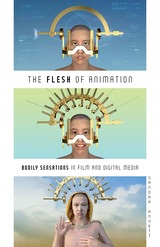5 start with W start with W
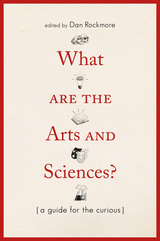
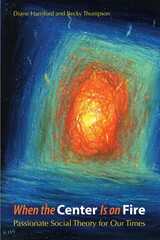
In this lively and provocative book, two feminist public sociologists turn to classical social thinkers—W. E. B. Du Bois, Max Weber, Karl Marx, and Émile Durkheim—to understand a series of twenty-first century social traumas, including the massacre at Columbine High School, the 9/11 attacks, the torture at Abu Ghraib prison, and Hurricane Katrina. Each event was overwhelming in its own right, while the relentless pace at which they occurred made it nearly impossible to absorb and interpret them in any but the most superficial ways. Yet, each uncovered social problems that cry out for our understanding and remediation.
In When the Center Is on Fire, Becky Thompson and Diane Harriford assert that classical social theorists grappled with the human condition in ways that remain profoundly relevant. They show, for example, that the loss of "double consciousness" that Du Bois identified in African Americans enabled political elites to turn a blind eye to the poverty and vulnerability of many of New Orleans's citizens. The authors' compelling, sometimes irreverent, often searing interpretations make this book essential reading for students, activists, generations X, Y, and Z, and everybody bored by the 6 o'clock news.
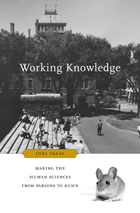
The human sciences in the English-speaking world have been in a state of crisis since the Second World War. The battle between champions of hard-core scientific standards and supporters of a more humanistic, interpretive approach has been fought to a stalemate. Joel Isaac seeks to throw these contemporary disputes into much-needed historical relief. In Working Knowledge he explores how influential thinkers in the twentieth century's middle decades understood the relations among science, knowledge, and the empirical study of human affairs.
For a number of these thinkers, questions about what kinds of knowledge the human sciences could produce did not rest on grand ideological gestures toward "science" and "objectivity" but were linked to the ways in which knowledge was created and taught in laboratories and seminar rooms. Isaac places special emphasis on the practical, local manifestations of their complex theoretical ideas. In the case of Percy Williams Bridgman, Talcott Parsons, B. F. Skinner, W. V. O. Quine, and Thomas Kuhn, the institutional milieu in which they constructed their models of scientific practice was Harvard University. Isaac delineates the role the "Harvard complex" played in fostering connections between epistemological discourse and the practice of science. Operating alongside but apart from traditional departments were special seminars, interfaculty discussion groups, and non-professionalized societies and teaching programs that shaped thinking in sociology, psychology, anthropology, philosophy, science studies, and management science. In tracing this culture of inquiry in the human sciences, Isaac offers intellectual history at its most expansive.
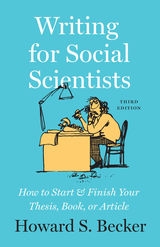
This is not a book about sociological writing. Instead, Becker applies his sociologist’s eye to some of the common problems all academic writers face, including trying to get it right the first time, failing, and therefore not writing at all; getting caught up in the trappings of “proper” academic writing; writing to impress rather than communicate with readers; and struggling with the when and how of citations. He then offers concrete advice, based on his own experiences and those of his students and colleagues, for overcoming these obstacles and gaining confidence as a writer.
While the underlying challenges of writing have remained the same since the book first appeared, the context in which academic writers work has changed dramatically, thanks to rapid changes in technology and ever greater institutional pressures. This new edition has been updated throughout to reflect these changes, offering a new generation of scholars and students encouragement to write about society or any other scholarly topic clearly and persuasively.
As Becker writes in the new preface, “Nothing prepared me for the steady stream of mail from readers who found the book helpful. Not just helpful. Several told me the book had saved their lives; less a testimony to the book as therapy than a reflection of the seriousness of the trouble writing failure could get people into.” As academics are being called on to write more often, in more formats, the experienced, rational advice in Writing for Social Scientists will be an important resource for any writer’s shelf.
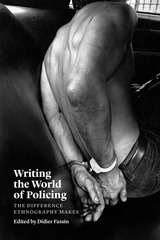
READERS
Browse our collection.
PUBLISHERS
See BiblioVault's publisher services.
STUDENT SERVICES
Files for college accessibility offices.
UChicago Accessibility Resources
home | accessibility | search | about | contact us
BiblioVault ® 2001 - 2024
The University of Chicago Press



